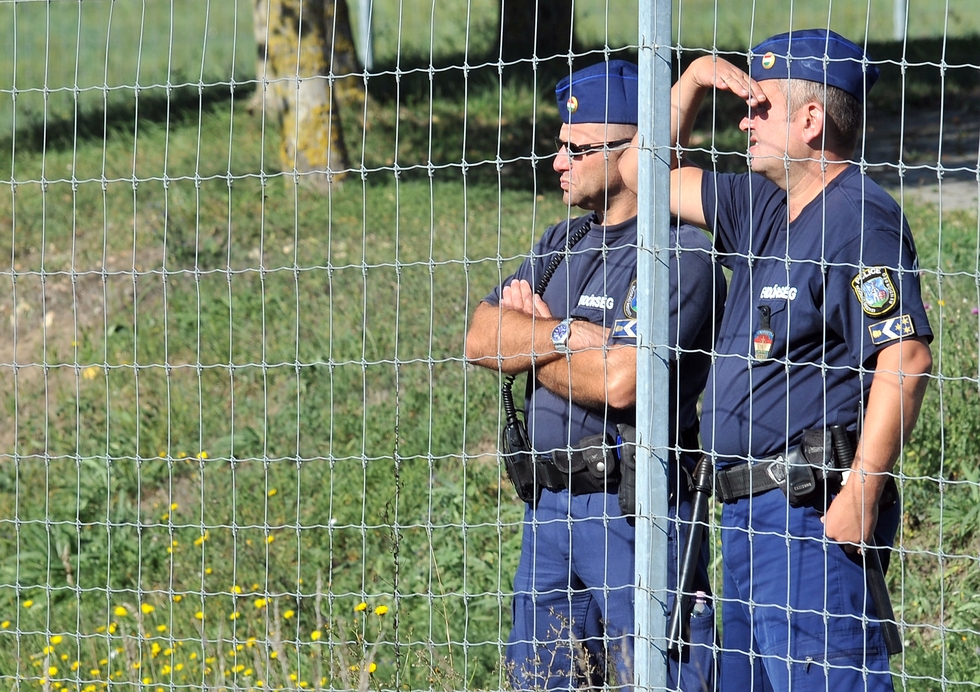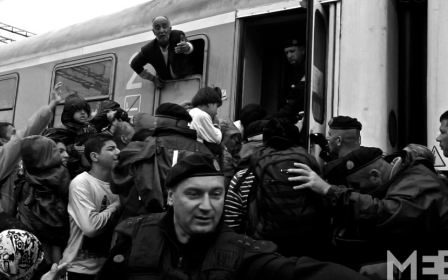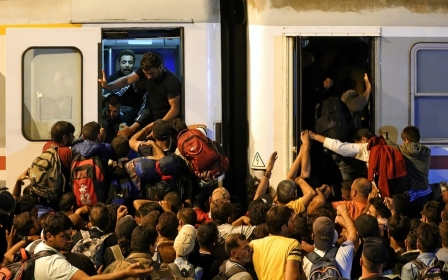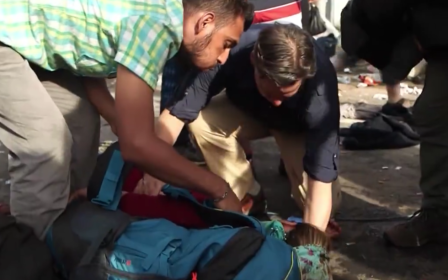Hungary approves increased use of army to police its border

The Hungarian parliament on Monday approved the wider use of the country's military in managing the refugee crisis amassing on its borders.
Earlier in the day, Prime Minister Viktor Orban had called for the army to be brought in to prevent Europe being "overrun" by the mostly Muslim refugees fleeing conflict in the Middle East.
"Our borders are under threat, our life based on a respect for laws ... and the whole of Europe. We are being overrun," Orban told parliament.
Last week, Hungary introduced tough new laws giving courts the power to jail people for up to three years for crossing its borders "illegally", rising to five years if they damage its frontier fences.
Hungary has built a razor-wire fence along the entire length of its border with Serbia, and last week hastily erected a barrier along the 41 kilometres of its border with Croatia which is not formed by the hard-to-cross Drava River.
The Hungarian government placed advertisements in the Lebanese press on Monday warning of "the strongest possible action" against anyone attempting to cross its borders illegally.
"Hungarians are hospitable, but the strongest possible action is taken against those who attempt to enter Hungary illegally," warned the adverts in Al-Jumhuriya, An-Nahar and French daily L'Orient le Jour, written in both English and Arabic.
"Do not listen to the people smugglers. Hungary will not allow illegal immigrants to cross its territory."
But a full-page notice in other local newspapers featured a letter by the Doctors Without Borders (MSF) group urging the European Union to open its borders to refugees.
Lebanon hosts more than 1.1 million of the four million Syrians who have fled their homeland since 2011, some of whom are now heading to Europe as the continent faces its biggest migration crisis since World War II.
Hungary's advertisements in both Arabic and English came two weeks after Denmark placed similar adverts in Lebanese newspapers in an attempt to stem an influx of migrants and asylum-seekers.
But medical organisation MSF published its own notices in three local papers, appealing to the EU to open its borders.
It said Europe's "policies of deterrence... have turned a foreseeable and manageable influx of people fleeing for survival into a policy-made human tragedy".
MSF's humanitarian coordinator for displacement Aurelie Pontie told AFP that "the only way forward is through providing safe and legal passage, and not through publishing ads to push back refugees.
"While European governments are using ad space in the Arab region to send messages of deterrence to refugees and migrants, MSF is using those same channels this week to publicly remind European leaders of their responsibilities."
MSF's letter appeared in Al-Hayat, Al-Quds, and The Daily Star, and included a large photo of a bright orange life jacket, a symbol of the dangerous journey many migrants and refugees are making across the Mediterranean.
In its own adverts in Lebanese papers earlier this month, Denmark warned that it had tightened its own regulations concerning refugees.
The right-wing government in Budapest has come under heavy criticism for its treatment of migrants, particularly over the police's handling of clashes at the flashpoint Serbian border crossing of Roszke.
Orban has said he is only applying EU regulations and blames Greece for waving the migrants through and Germany for relaxing asylum rules for Syrians.
New MEE newsletter: Jerusalem Dispatch
Sign up to get the latest insights and analysis on Israel-Palestine, alongside Turkey Unpacked and other MEE newsletters
Middle East Eye delivers independent and unrivalled coverage and analysis of the Middle East, North Africa and beyond. To learn more about republishing this content and the associated fees, please fill out this form. More about MEE can be found here.




